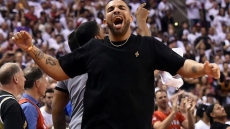VANCOUVER — The first time he was old enough to vote in an election, Sean Graham says he realized the system was flawed.
His hometown riding in northern Alberta was a secure seat for a party that he didn't support, so voting for anyone else under the first-past-the-post system felt like a wasted ballot.
"That to me was a significant problem. Regardless of where someone lives, their vote should matter," Graham said from Edmonton.
Only a few years later as an undergraduate student at the University of Alberta, Graham crafted a pitch for a new electoral system. That model is now being considered by voters in British Columbia, where a provincewide referendum on electoral reform is underway.
"It is the first Canadian-developed proportional representation system to be put to a province-wide vote, so I'm very proud to have my work have that status. Certainly it has gained traction more than I thought, though I was hopeful because I do think it addresses the concerns quite well," he said.
The first question on the ballot asks voters to choose between the existing first-past-the-post voting system and proportional representation, a form of voting where the parties gain seats in proportion to the number of votes that are cast for them.
The second question asks voters to rank three forms of proportional representation: Rural-urban proportional, mixed member proportional and Graham's model, dual member proportional.
Elections BC is accepting ballots by mail or in person until Nov. 30.
Graham said he developed the model as a grant-funded independent research project that was supervised by a professor, while he was pursuing double majors in political science and physics.
"I thought it would be helpful to come up with a system that not only addressed the issue of rural inclusion better but also retained more of what people like about first-past-the-post," he said.
This isn't the first time a province is considering it. When the government of Prince Edward Island put out a white paper looking for proportional representation proposals, Graham said he realized dual-member proportional met each of its requirements and submitted it. It was one of five options on the ballot in a non-binding plebiscite on electoral reform in that province in 2016, however, mixed-member proportional won the most votes.
Another referendum question asking P.E.I. voters to decide between first-past-the-post and mixed member proportional is expected to be on the ballot in the next general election.
Graham said he submitted the model to the B.C. government through a similar process.
In dual member proportional, most electoral districts are combined with a neighbouring district and have two representatives in the legislature, although large rural districts continue to have one member. In two-member districts, a voter can vote for one candidate or a pair of candidates who may or may not be from the same party. The first seat in a district is won by the candidate with the most votes, while the second goes to the parties so that each party's share of seats roughly matches its share of the popular vote.
Mixed member proportional is used in a number of countries, including Germany and New Zealand. Rural-urban proportional is a hybrid of mixed member and single transferable vote, which is used in Ireland and Australia, and was designed by Fair Vote Canada.
Some have criticized dual member proportional because it has not been tested elsewhere in the world.
"I find that a bit strange in some ways. The argument against proportional representation in the past has often been that it's imported from other countries, so now that we have a uniquely Canadian invention on the ballot and they're still not happy with that, I find that a bit surprising," Graham said.
Dual member is largely modeled on mixed member proportional, he said, but he designed it to address the unique needs of Canada.

